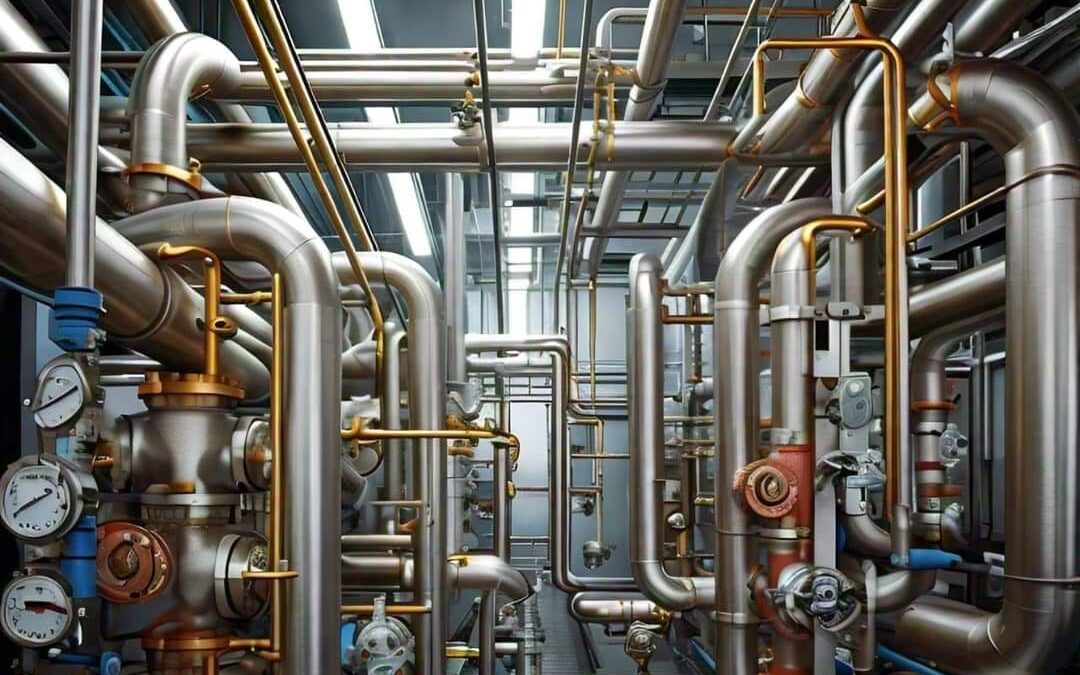Process piping refers to a network of interconnected pipes, fittings, valves, and other components used to transport fluids within an industrial facility.
Process piping is different from plumbing systems, which are designed to move water into and out of a facility. Process piping is designed for the products it transports, and must meet the requirements for that operation. These requirements include: Corrosion resistance, Heat resistance, OSHA standards, and Permits and inspections.
covers materials and components, design, fabrication, assembly, erection, examination, inspection, and testing of piping.
ASME B31. 3 specifies the materials that can be used in process piping systems. The materials are regulated based on their strength, corrosion resistance, and other mechanical properties. They must also be able to withstand the temperature, pressure, and other conditions of the process.


